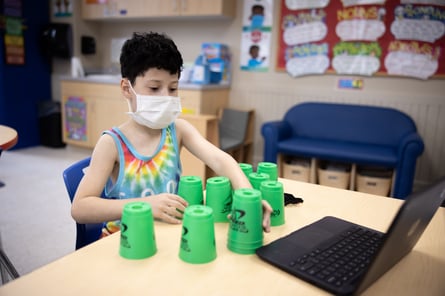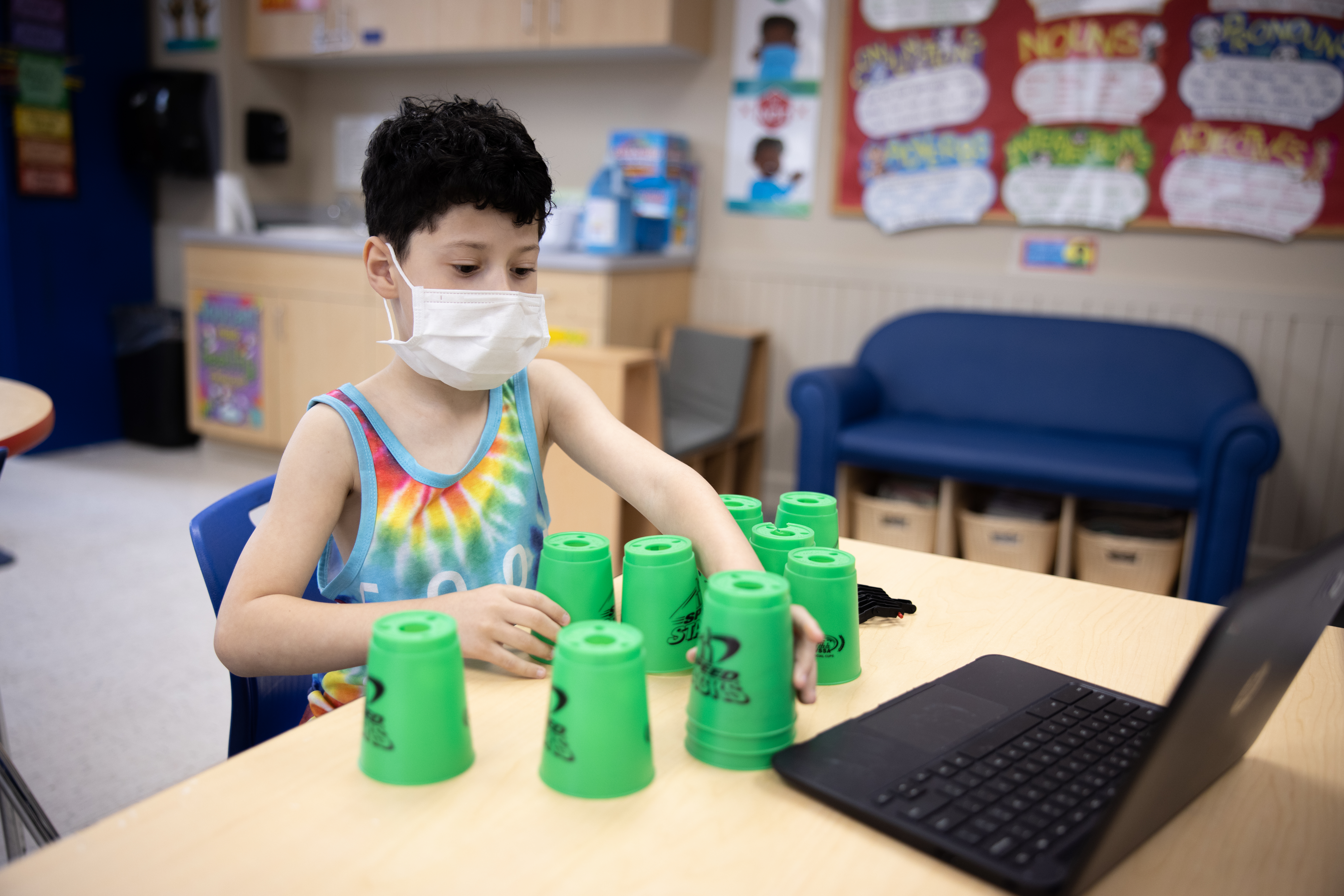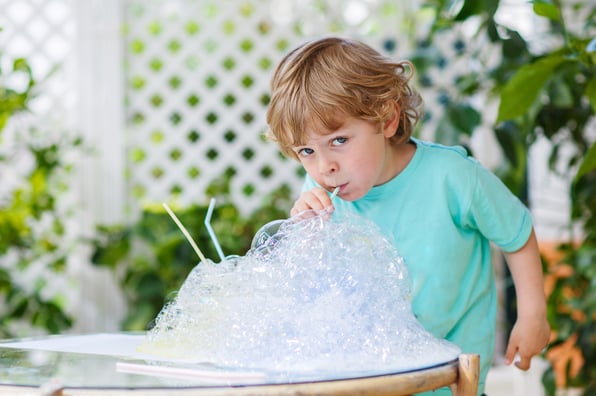 “On average, students lose approximately 2.6 months of learning in math over the summer.” (Harvard Graduate School of Education)
“On average, students lose approximately 2.6 months of learning in math over the summer.” (Harvard Graduate School of Education)
This statement was made before teachers and parents needed to deal with the impact of COVID-19 and the modifications that needed to be made for students to safely learn during the unprecedented 2020-2021 school year.
Studies that focus on the degree of “COVID slide” vary in their results, but they all found that students would lose more math skills than reading skills during this challenging year, says Education Week — which makes math reinforcement more important than ever.
Fortunately, there are plenty of fun ways to help make that happen!
The activities below are geared for younger children and will help your child build on the math skills learned at school. In general, select activities that coincide with your child’s skill level or make age-appropriate adjustments.
- If you have young children, count everything: the number of stairs to the second floor, the number of steps from the car into their childcare, how many apples are in a bag, and so forth.
- Sorting games are also good for math preparation for young children. Sort toy cars by color, blocks by size and shape, and so on.
- Play the “how high can you count” game. Encourage your children to beat their old records.
- Kids love silly songs. Substitute “100 jars of juice in the box” for the beer hall standard of your youth. It’s a great way to practice counting backward.
As your child gets a bit older, you can ask for help when counting change or calculating discounts. The Harvard site also suggests that if your child enjoys watching sports, you can talk about what player statistics mean. For children who enjoy helping in the kitchen, double a recipe or cut it in half and let your child help with calculations.
Stanford University, meanwhile, recommends 40 children’s books that can help to foster a love and appreciation of math. You can find the list here and then choose engaging books to help with:
- Adding and subtracting
- Counting
- Measurement and size
- Patterns and algebra
- Shapes
- Spatial relations
- Taking apart numbers
You can also talk to your librarian for book recommendations.
Outside games that reinforce math concepts include hopscotch and jump rope. With the latter, teach rhymes like these: One, two, buckle my shoe; three, four, shut the door; five, six, pick up sticks; seven, eight, shut the gate; nine, ten, start again!
GreatSchools.org notes how numbers surround your children at home, so challenge your kids to walk around and note what they see. They may find numbers on the kitchen clock or on a calendar, as a shoe size or something else entirely.
If your children are ready to create a code, have them assign a number to each letter of the alphabet (A = 1, B = 2; or perhaps Z = 1, Y = 2 if you’re ready to work on the concept of “backward.”) Then you and your children can create coded messages for one another to decipher!
Here’s one more idea, this one from Mathnasium.com. Listen to music with your child and clap your hands to the beat. That way, they can “hear” mathematical patterns. Perhaps another child can count how many times you clap to a song.
Horizon Education Centers
In our child care programs, we incorporate math into activities in age-appropriate ways, along with activities that develop reading readiness, science skills, and more.






